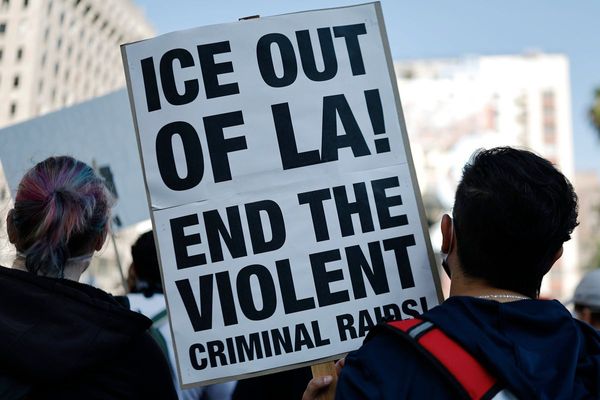
Labour’s Richard Parker has narrowly beaten Andy Street to become the next mayor of the West Midlands in the most tightly contested metro mayor ballot in England.
Parker clinched the win by a knife-edge 1,500 votes – he received 225,590 votes, slightly ahead of Street’s 224,082. It was a huge win for Labour, which had been briefing that it expected to lose to Street and his previously formidable “Brand Andy” campaign.
Taking to the stage for his victory speech, Parker said: “This is the most important thing I will ever do. This week, the people voted for the person and the party. They recognised a Labour mayor can make a positive difference. It shows that people are calling for Labour and calling for change. People are asking us to govern.
“I hope the prime minister is watching too, because – in case you haven’t heard, Rishi Sunak – our people are calling for a general election.”
He also thanked his rival for “building up the combined authority to the powerhouse it is today”.
Street made a brief speech in which he said: “In the end, it was not to be. It has been my honour to serve and lead this place for the last seven years.
“I hope I have done it with dignity and integrity, and I hope I’ve bequeathed to Richard a role which young aspiring leaders will want to aspire to one day. I could have done no more than that.”
Street’s defeat marked the end of a miserable 48 hours for Rishi Sunak and his party, who lost hundreds of council seats across the country.
Polls ahead of the vote were showing Street and Parker almost neck and neck for the win .
A nail-biting day saw multiple recounts and bundle rechecks that held the result up for hours. The results were originally expected at 3pm, but did not ultimately materialise until after 8pm.
Bursts of optimism swung backwards and forwards between the two main parties every few hours. At one point Street was ahead by more than 20,000 votes and the Labour benches were looking gloomy.
The day prior to the election, Labour sources were predicting a loss, and many seemed resigned to the fact that Street was likely to cling on. In the end, the final result rested on Sandwell and a tiny margin putting Parker ahead.
The Labour party had already won three inaugural mayor votes in the East Midlands, North Yorkshire and North East, and had held on to their mayors elsewhere; this was the only vote in which a mayoralty switched hands.
It will be a big shift for the West Midlands after two terms of Street, a big personality in the region who has held the role since its creation in 2017. He has spoken at length about his decision to ditch references to the Conservative party in his election material and focus his campaign on “Brand Andy” – he said mayoral elections were more “personal” and about voting for an individual, rather than a party.
He claimed always to have done this, but this time round the tactic seemed a more deliberate ploy to distance himself from his party and its rapidly declining support. Towards the end of the campaign, he enlisted the help of Boris Johnson, who wrote to voters urging them to “forget about the government” and vote for Street.
The only Tory success story of the elections was Ben Houchen, who retained his role in Tees Valley, though he did so with minimal reference to his party. Rishi Sunak’s name was never mentioned in campaign literature, and Houchen avoided mentioning the party and its leader in his acceptance speech on Friday. Houchen was also the only candidate not wearing a party rosette. He forgot, he said.
In contrast, Richard Parker was proudly wearing a red Labour rosette at the West Midlands count at the International Convention Centre in Birmingham on Saturday, and pointedly said voters had chosen “person and party”.
Fears within the party that they would lose because of Labour’s stance on Gaza appeared not to have been realised, although the conflict may have had an impact in areas such as Birmingham, where a third of the population is Muslim.
An independent candidate, lawyer Akhmed Yakoob, campaigned largely on the Gaza issue, and was joined by George Galloway on the campaign trail.
He came third in Birmingham, with nearly 20% of the vote share, while Labour’s vote share was down from 2021, suggesting the party may have lost some disaffected Muslim voters.
Keir Starmer said Labour’s victory in the West Midlands was a “phenomenal result” that was “beyond our expectations”. “People across the country have had enough of Conservative chaos and decline and voted for change with Labour,” he said. “Our fantastic new mayor, Richard Parker, stands ready to deliver a fresh start for the West Midlands.
“My changed Labour party is back in the service of working people, and stands ready to govern. Labour will turn the page after 14 years of Tory decline and usher in a decade of national renewal. That change starts today.”







